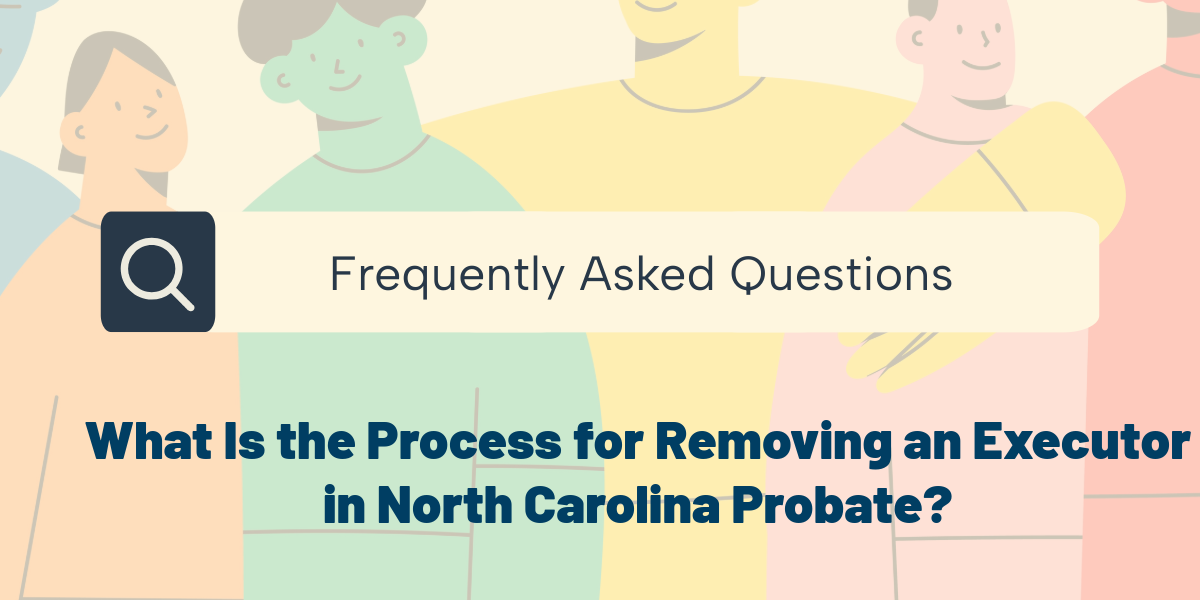What Is the Process for Removing an Executor in North Carolina Probate?
Detailed Answer
In North Carolina, an executor—legally called a personal representative—manages an estate after a person’s death. If the personal representative fails to meet statutory duties or acts against the estate’s best interests, you can ask the clerk of superior court to remove them. You start by filing a petition and proving valid grounds under North Carolina law.
Identify Grounds Under North Carolina Statutes
North Carolina law specifies reasons to remove an executor. Common grounds include:
- Failure to give a required bond: N.C.G.S. § 28A-13-1
- Neglect, misconduct or material omission in estate duties: N.C.G.S. § 28A-13-2
- Physical or mental inability to perform duties: N.C.G.S. § 28A-13-3
File a Verified Petition
You prepare a verified petition that identifies the estate file number, decedent’s name, personal representative’s name and the grounds for removal. Then you file the petition with the clerk of superior court where the estate is pending.
Serve Notice to Interested Parties
North Carolina rules require you to serve the petition on the personal representative and all interested parties—such as heirs, devisees and known creditors. Follow service procedures under Rule 4 of the North Carolina Rules of Civil Procedure.
Attend the Court Hearing
After service, the clerk schedules a hearing. You present evidence to support removal. The executor may respond with their own evidence. The clerk evaluates the facts and decides whether to remove the personal representative. If the clerk grants removal, the court appoints a successor under N.C.G.S. § 28A-2-1.
Key Steps to Removing an Executor in North Carolina Probate
- Confirm valid removal grounds under N.C.G.S. §§ 28A-13-1 to 28A-13-3.
- Draft and verify a petition stating the facts and statutory basis.
- File the petition in the clerk of superior court in the county handling the estate.
- Serve the petition on the personal representative and all interested parties.
- Gather and present supporting evidence at the hearing.
- Obtain the court order removing the executor and appointing a successor.
Call to Action
Removing an executor involves strict procedural rules and tight deadlines. Pierce Law Group attorneys know how to navigate North Carolina probate statutes and court procedures. We can guide you through each step, from drafting the petition to representing you at a hearing. Email us at intake@piercelaw.com or call (919) 341-7055 to schedule a consultation.


